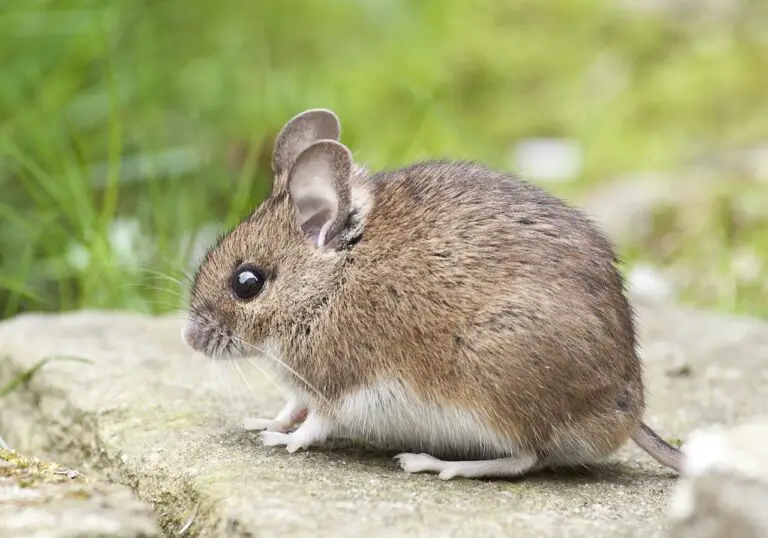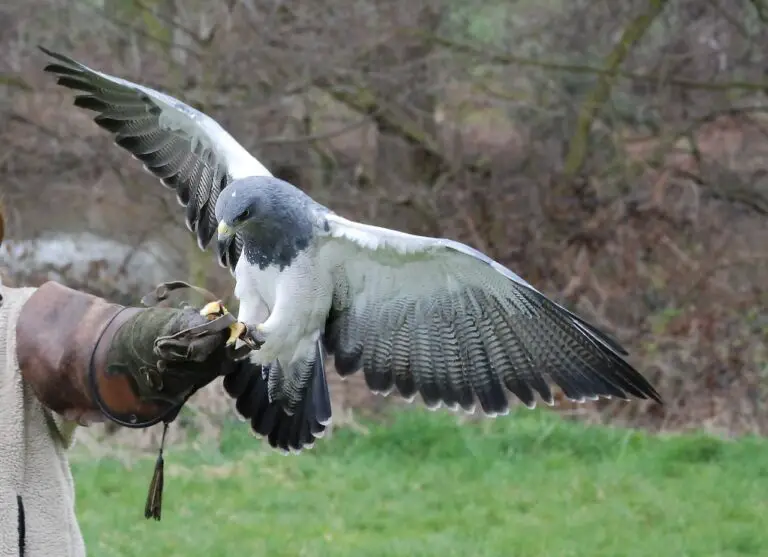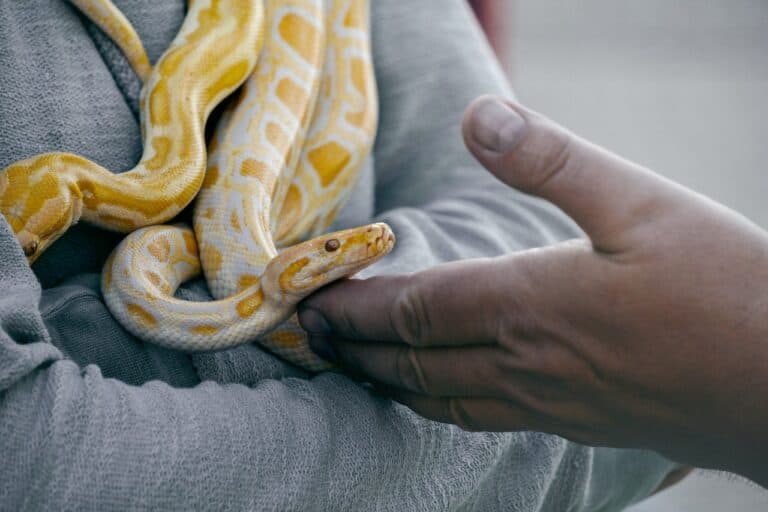Exotic Small Mammal Supplies – Top Must-Have Picks [Guide]
If you are a proud owner of an exotic small mammal, such as a hedgehog, sugar glider, or chinchilla, you know that these adorable creatures require special care and attention.
To ensure the health, happiness, and well-being of your furry friend, it’s essential to have the right supplies on hand.
In this comprehensive guide, we will walk you through the must-have supplies for your exotic small mammal, ensuring you’re well-prepared to provide them with a comfortable and enriching environment.
Key Takeaways:
- Provide a spacious and secure enclosure for your exotic small mammal, with appropriate hiding spots and ventilation.
- Choose safe and absorbent bedding, avoiding cedar or pine shavings.
- Feed a balanced diet of commercial food supplemented with fresh fruits, vegetables, and protein sources.
- Offer a variety of enrichment toys and structures to stimulate mental and physical activity.
- Regularly groom your pet’s fur, trim their nails, and provide necessary hygiene products.
- Maintain regular veterinary check-ups and be aware of potential health concerns.
- Use a suitable carrier for travel, ensuring comfort and temperature regulation.
Introduction to Exotic Small Mammals Supplies
Exotic small mammals are unique and fascinating pets that require specialized care.
To ensure their well-being, it’s important to have the following supplies:
- Appropriate habitat and enclosure
- Suitable bedding and substrate
- Proper food and water accessories
- Enrichment and toys for mental stimulation
- Grooming supplies for hygiene
- Health and hygiene products
- Travel and transportation essentials
Providing your exotic small mammal with these essential supplies can create a comfortable and nurturing environment for them to thrive.
Habitat and Enclosure
To provide your exotic small mammal with a safe and comfortable habitat, consider the following:
- Choose a spacious cage or enclosure that allows for natural behaviors and exploration. For example, hedgehogs require a cage with at least four square feet of floor space, while sugar gliders need a tall cage with multiple levels.
- Ensure the enclosure has secure walls and a locking mechanism to prevent escapes. Hedgehogs, in particular, are known to be skilled escape artists, so make sure the cage has secure latches and no gaps.
- Opt for a well-ventilated habitat to maintain proper airflow. Good ventilation helps prevent the buildup of odors and ensures fresh air circulation.
- Provide hiding spots, tunnels, and platforms to create an enriching environment. These elements mimic the natural habitat of small mammals and provide them with places to retreat and play.
- Place the enclosure in a quiet area away from direct sunlight and drafts. Excessive exposure to sunlight or drafts can be detrimental to the health of your small mammal.
Additional Information:
- Consider adding branches or perches to the enclosure for climbing and exercising. This is especially beneficial for sugar gliders and other arboreal species.
- Provide appropriate temperature regulation in the habitat. Some exotic small mammals, like hedgehogs, require a temperature range of 72-80°F (22-27°C) for optimal comfort and health. Use a thermometer to monitor the temperature inside the enclosure.
Bedding and Substrate
The right bedding and substrate are crucial for maintaining cleanliness and comfort.
Consider the following options:
- Use paper-based bedding, such as recycled paper pellets or shredded paper, which are safe and absorbent. Avoid using cedar or pine shavings as they can be harmful to your small mammal’s respiratory system.
- Provide soft nesting material, like fleece or shredded paper, for added warmth and comfort. Small mammals, such as chinchillas, enjoy burrowing and creating nests, so providing suitable materials encourages natural behavior.
- Clean the bedding regularly to prevent odor buildup and maintain hygiene. Spot clean the enclosure daily and change the bedding at least once a week, or more frequently if needed.
Additional Information:
- Consider using fleece liners as an alternative to traditional bedding. Fleece liners are reusable, soft, and easy to clean, making them a convenient option for many small mammal owners.
- Avoid using dusty or aromatic substrates as they can irritate your small mammal’s respiratory system. Opt for unscented and low-dust bedding options.
Food and Water Accessories
Providing your exotic small mammal with a nutritious diet and access to clean water is essential for their health.
Consider the following supplies:
- Choose a high-quality commercial diet specifically formulated for your small mammal’s species. Research the dietary requirements of your pet to ensure you’re providing the right balance of nutrients.
- Supplement their diet with fresh fruits, vegetables, and protein sources that are safe for their species. Research the specific dietary needs of your small mammal. For example, hedgehogs require a mix of high-quality cat food, insects, fruits, and vegetables, while sugar gliders have a more complex diet that includes nectar, fruits, vegetables, and protein sources.
- Offer a variety of fresh fruits, vegetables, high-quality pellets, and occasional treats. This variety ensures a diverse diet and helps prevent nutritional deficiencies.
- Use gravity-fed water bottles or water dishes that are suitable for your small mammal’s size and accessibility. Regularly check and refill water to ensure your pet has access to clean and fresh water at all times.
Additional Information:
- Avoid feeding your small mammal foods that are toxic or harmful to their species. Certain foods, such as chocolate, caffeine, grapes, and onions, can be toxic to small mammals and should be avoided.
- Monitor your pet’s weight and adjust their diet accordingly. Overfeeding can lead to obesity, while underfeeding can result in malnutrition.
Enrichment and Toys
Keep your exotic small mammal mentally stimulated and entertained with a range of enrichment options:
- Provide tunnels, hammocks, and climbing structures to encourage natural behaviors. Hedgehogs, for example, enjoy exploring tunnels and hiding in cozy hammocks.
- Offer puzzle feeders and foraging toys to stimulate their hunting instincts. These toys provide mental stimulation and make mealtime more engaging and challenging.
- Rotate toys regularly to prevent boredom and promote exploration. Introduce new toys periodically to keep your small mammal curious and engaged.
- Incorporate chew toys made from safe materials, such as untreated wood or safe plastics, to satisfy their natural chewing instincts. Chinchillas, in particular, have continuously growing teeth and need appropriate chew toys to keep their teeth in good condition.
Additional Information:
- Consider creating a sensory-rich environment by incorporating different textures and materials in the enclosure. Some small mammals enjoy exploring items like paper bags, cardboard tubes, and fabric tunnels.
- Provide interactive toys that encourage physical activity, such as exercise wheels or balls. However, ensure the toys are specifically designed for your small mammal’s species and size.
Grooming Supplies
Maintaining proper grooming habits is essential for your exotic small mammal’s health and well-being.
Consider the following supplies:
- Use a soft-bristled brush or grooming mitt to gently groom your pet’s fur. Regular grooming helps remove loose hair and prevents matting.
- Trim their nails regularly to prevent overgrowth and discomfort. Use specially designed nail clippers for small mammals and be cautious not to cut into the quick (blood vessel inside the nail).
- Provide dust baths or sand baths for small mammals that require it, like chinchillas. Chinchillas have dense fur that requires regular dust baths to remove excess oils and maintain coat health.
- Use pet-safe shampoos or dry shampoo alternatives for species that require occasional bathing. Hedgehogs, for example, may need a bath to keep their skin clean, but be sure to use products specifically formulated for them.
Additional Information:
- Check your small mammal’s ears regularly for signs of infection, mites, or excessive wax buildup. If you notice any abnormalities, consult a veterinarian.
- Consult a veterinarian or an experienced small mammal owner for guidance on grooming specific to your pet’s species.
Health and Hygiene Products
Maintaining your exotic small mammal’s health and hygiene is crucial for their overall well-being.
Consider the following supplies:
- Have a reliable and knowledgeable exotic veterinarian who specializes in small mammal care. Regular veterinary check-ups are essential to ensure your pet’s health and detect any potential issues early.
- Keep a first aid kit specifically for your small mammal, including items like wound cleansers, gauze, and styptic powder to stop bleeding from minor cuts or nail trims.
- Have appropriate parasite prevention products recommended by your veterinarian, such as flea and tick treatments or mite prevention products.
Additional Information:
- It’s important to monitor your small mammal’s droppings for any signs of abnormality, such as changes in color, consistency, or frequency. Changes in droppings can be an indication of underlying health issues.
- Be aware of potential hazards in your small mammal’s environment, such as toxic plants, electrical cords, or small objects that they can swallow.
Travel and Transportation
When it comes to traveling with your exotic small mammal, it’s vital to ensure their safety and comfort.
Consider the following supplies:
- Use a secure and well-ventilated carrier specifically designed for small mammals. Avoid using carriers with large openings that can pose an escape risk.
- Line the carrier with a soft bedding material to provide comfort during travel.
- Maintain a consistent temperature to avoid subjecting your exotic small mammal to extreme temperatures. Small mammals are sensitive to temperature changes, so it’s important to keep them in a controlled environment during travel.
Additional Information:
- Avoid leaving your small mammal unattended in a vehicle, as temperatures can rise quickly and lead to heatstroke or cold stress.
Conclusion
By acquiring the must-have supplies mentioned in this guide, you can create a nurturing environment for your exotic small mammal.
Remember to prioritize their comfort, health, and mental well-being by providing appropriate habitat, nutrition, enrichment, grooming, and healthcare.
With these supplies and your love and attention, your exotic small mammal will thrive and bring joy to your life.
FAQs
What type of enclosure is suitable for a hedgehog?
Hedgehogs require a spacious enclosure with solid walls and a secure lid to prevent escapes.
Wire cages are not suitable as hedgehogs can easily squeeze through the bars.
Can I use regular bedding for my sugar glider?
No, sugar gliders require specific bedding made of materials that won’t harm them if ingested.
Avoid using cedar or pine shavings as they can be toxic to sugar gliders.
How often should I trim my chinchilla’s nails?
Chinchilla’s nails should be trimmed every 4-6 weeks to prevent overgrowth and discomfort.
If you are unsure or uncomfortable doing it yourself, consult a veterinarian or a professional groomer.
Are there any specific health concerns for exotic small mammals?
Yes, some exotic small mammals are prone to dental issues, so regular dental check-ups are crucial.
They can also be susceptible to respiratory infections and parasites, so it’s essential to monitor their health and seek veterinary care if needed.
Can I use a regular pet carrier for traveling with my small mammal?
No, it’s best to use a carrier specifically designed for small mammals.
These carriers provide the necessary ventilation and security to ensure a safe and comfortable travel experience for your pet.
Peter Stones is the founder of Exotic Pets Place, the leading online resource for exotic pet care information.
With over 10 years of hands-on exotic pet ownership experience, he is deeply passionate about sharing his expertise to help others properly care for their unusual pets.
When he's not writing extensively researched articles or connecting with fellow exotic pet enthusiasts worldwide, you can find Peter at home tending to his own beloved menagerie of exotic animals.

![Exotic Small Mammal Supplies - Top Must-Have Picks [Guide]](https://exoticpetsplace.com/wp-content/uploads/2023/06/Exotic-Small-Mammal-Supplies-Top-Must-Have-Picks.jpg)
![Exotic Small Mammals Nutritional Guide [Your Ultimate Resource], two guinea pigs eating veggies](https://exoticpetsplace.com/wp-content/uploads/2023/06/Exotic-Small-Mammals-Nutritional-Guide-Your-Ultimate-Resource-two-guinea-pigs-eating-veggies-768x529.jpg)




